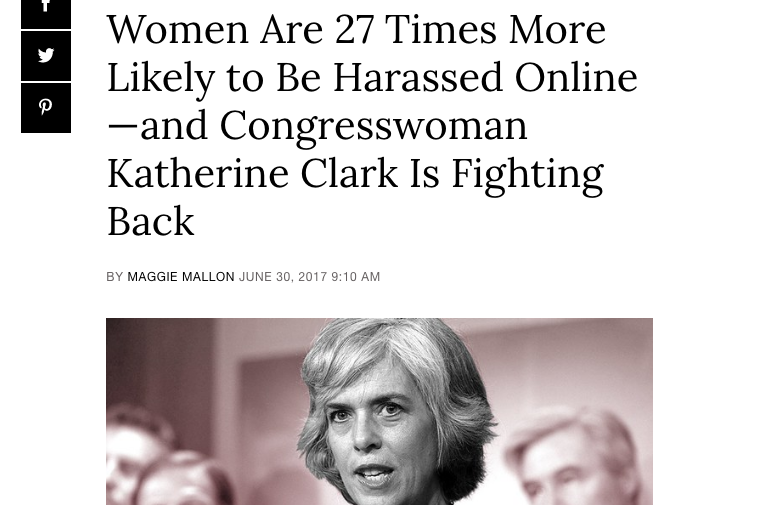(3D) OOH, so malty!
Created to mark the launch of Amstel in Romania, this 3D OOH campaign for Heineken turns ordinary billboards into 3D


As the old saying goes, there are three kinds of lies. Lies, damned lies, and statistics. In the Glamour piece about Congresswoman Katherine Clark, the lie appears already in the headline: "Women Are 27 Times More Likely to Be Harassed Online—and Congresswoman Katherine Clark Is Fighting Back."
Where does that "27 times more likely" number come from?
And according to a 2015 report from the United Nations Broadband Commission, women are 27 times more likely than men to face harassment online.
Some sentences even lack internal consistency: “In Europe,” one bullet point notes, “sport has been used as a vehicle to engage youth and change entrenched attitudes on gender equality in a number of countries including Tajikistan, Georgia and Kyrgyzstan.” Two of those three countries are in Asia — Georgia’s in between.
Among the many wrongs of that report are the 30% of dead source links in it, several linking directly to sources residing on the researchers own C-drive.
"This is an uninformed, misguided and unfortunate report. If the overall issue was not so serious, it would be laughable that the U.N. is citing this work. It is willful ignorance to utilize such incredibly outlandish and outdated data," said Michael D. Gallagher, president and CEO of ESA in this press release.
"ESA strongly supports empowering women and minorities and creating an inclusive digital environment that welcomes all perspectives. However, the U.N. does this important issue a great disservice and undercuts its credibility by spreading ridiculous stereotypes and false opinions."
The report was in fact so bad, that the UN withdrew the report, and even apologised for the poorly sourced material. Meanwhile The Pew research center reports on online harassment shows that men and women experience different kinds of online harassment, with men somewhat more likely than women to experience online harrasment.